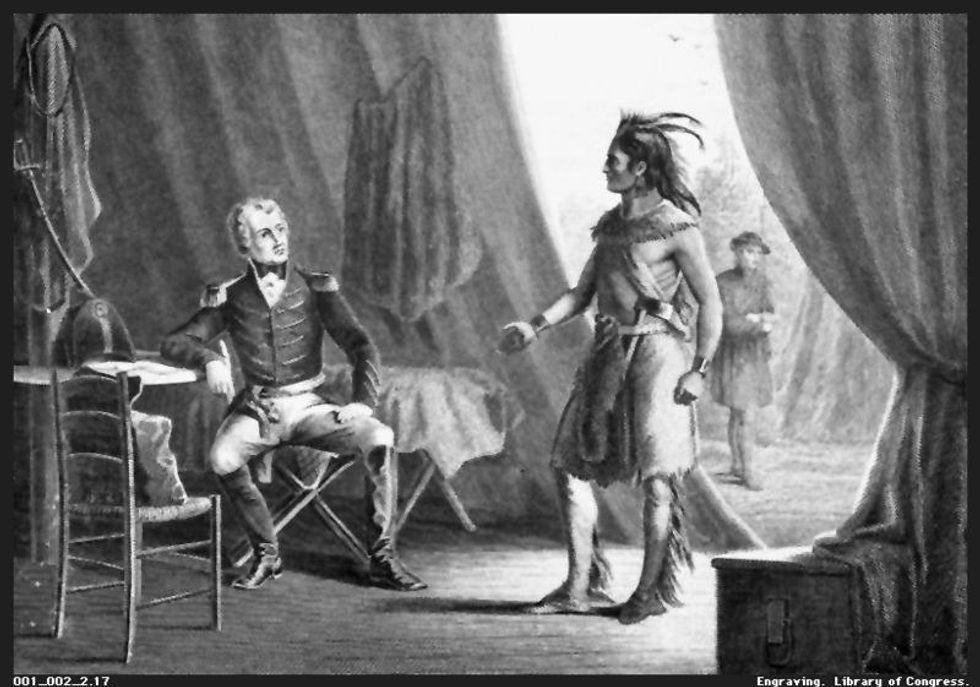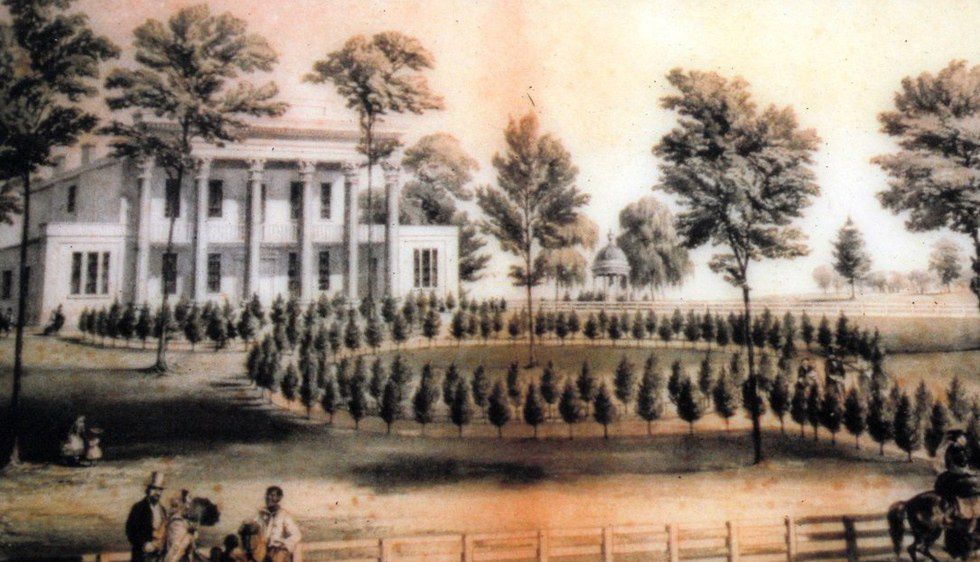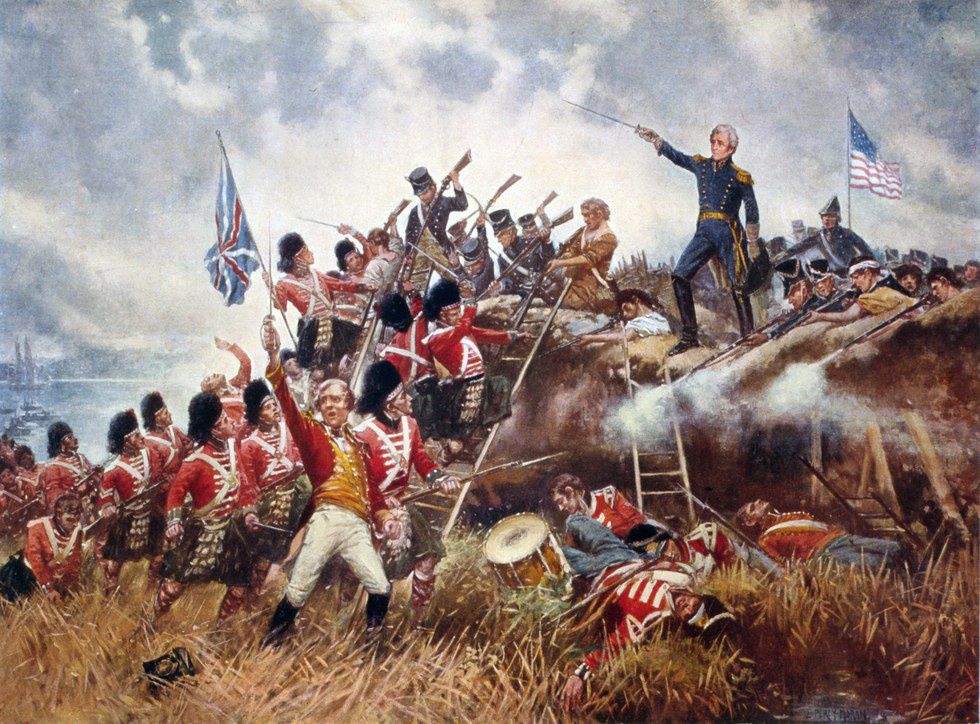Turns out Old Hickory was kind of a dick. Not only is there an entire section of his Wikipedia page dedicated to his "Temperament" (tantrums), but his general douchebaggery seems to have extended beyond his personal allure and into his public policy. Read on to discover things you never wanted to know about America's seventh president!
1. He killed a man for insulting his wife
Jackson's wife Rachel divorced her first husband to be with him, and to demonstrate his gratitude he happily threatened. When the public discovered that Rachel and her first husband's divorce had never been finalized, political enemies launched the happy couple into accusations of bigamy and adultery. When one Charles Dickinson ventured to insult Rachel and then made the mistake of involving his father-in-law in a horse race against Jackson, the two traveled outside of Tennessee state lines (where dueling was illegal) to duel in Kentucky. Dickinson was killed, and although this escapade proved severely detrimental to Jackson's reputation, he went on to become President of the United States.
Just goes to show that, in America, you can do whatever you want, and get away with it, too!
2. The Creek campaign
The Red Sticks faction of the Creek nation--allies of the Spanish and British during the War of 1812--sought to prevent the expansion of United States Territory. Then-general Andrew Jackson, of course, managed to be a bit of a twit (a characteristic which would tragically become his most recognizable personality trait) throughout the whole thing.
After a battle in which he took more than 500 women and children prisoner, he forced representatives of the entire Creek nation to sign the Treaty of Fort Jackson, which ceded more than 23,000,000 acres of Creek territory to the the United States.
But don't worry, this is only the beginning.
3. The Hermitage
The Hermitage was Andrew Jackson's 1,000 acre cotton plantation planted, harvested, and maintained by more that 300 African American slaves. This estate was the main source of wealth for the Jackson family. Jackson and his administration were naturally unsympathetic towards the abolitionist movement, although several of his own slaves would eventually flee during the Civil War.
Some may argue that the southern plantation was an integral facet of the American economy, and that Jackson's stance on slavery was not unusual for this era. I would like to point out that one would hope that a president could rise above the frivolity of public opinion, especially when it concerns human life, but in good old Andrew's case, that seems to be asking a bit too much. In any case, it's clear his blatant racism did no favors for this country's social development.
4. The Battle of New Orleans
When the going gets tough, the tough illegally detain their enemies! Or something like that.
Tensions were on the rise in New Orleans following this historic battle between the U.S. and the British. One foolish judge attempted to anonymously criticize Jackson's strategy, and found himself arrested in the midst of an enforced martial law.
Yes, that's right. Jackson attempted to place the entire City of New Orleans under his jurisdiction during the conflict, theoretically allowing him to incarcerate anyone who struck his fancy. He also executed several members of his militia under foggy circumstances before he was effectively sent into a time-out.
He went on to receive the Congressional Gold Medal for his bravery and leadership.
5. The Indian Removal Act
Jackson is well known for his fierce anti-Indian policies. Whilst in office, he managed to stoke the genocide of American Indian Nations from a toasty hearthside sizzle to a raging bush fire of violence, denial, manipulation, and crimes against humanity.
The Indian Removal Act is one in a series of legislation that attempted to "get rid of" the American Indian "problem." On May 28th, 1830, Jackson signed an act into law that allowed the government to evict Native Americans from their land within "settled" state borders and forcing them to relocate to "unsettled" lands west of the Mississippi. Under this law, 4,000 Cherokee died en route during their forced relocation to the Western Territories between 1838 and 1839. Forced to walk, their journey is now known as the "Trail of Tears".
Despite his blatant racism and the fact that he vehemently opposed equal rights for people of color, he was good enough to demonstrate his white, paternalistic side to at least one American Indian child, Lyncoya Jackson, whom he formally adopted. Lyncoya, orphaned in an American attack against the Creek nation, would live and study in the Hermitage. Some sources claim that he adopted another American Indian boy, Theodore.
Given the general creepiness of adopting a child from a race that you have openly attempted to eliminate, I have to to assume he wasn't the nicest dad.
6. He said some pretty stupid things
You don't need to take my word for it. Andy can speak for himself. Some personal favorites include:
"Mr. Van Buren, your friends may be leaving you, but my friends never leave me."
"No need think that the world can be ruled without blood. The sword shall and must be red and bloody."
"To the victors belong the spoils."
"Americans are not a perfect people, but we are called to a perfect mission."
7. He was friends with Aaron Burr
This should really speak for itself.


























